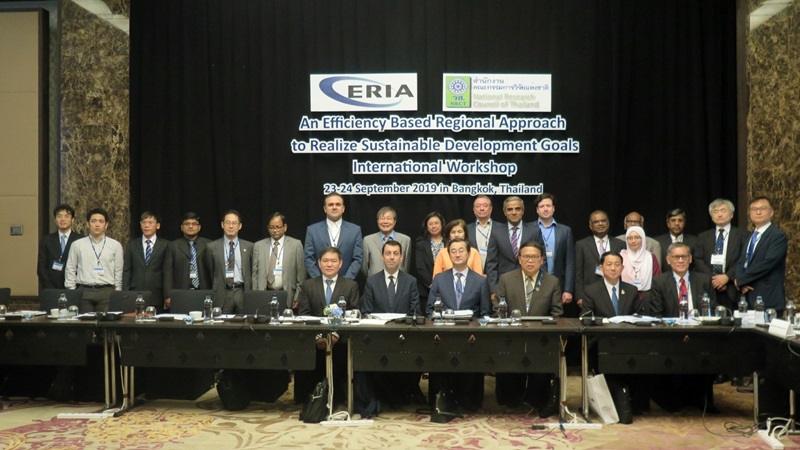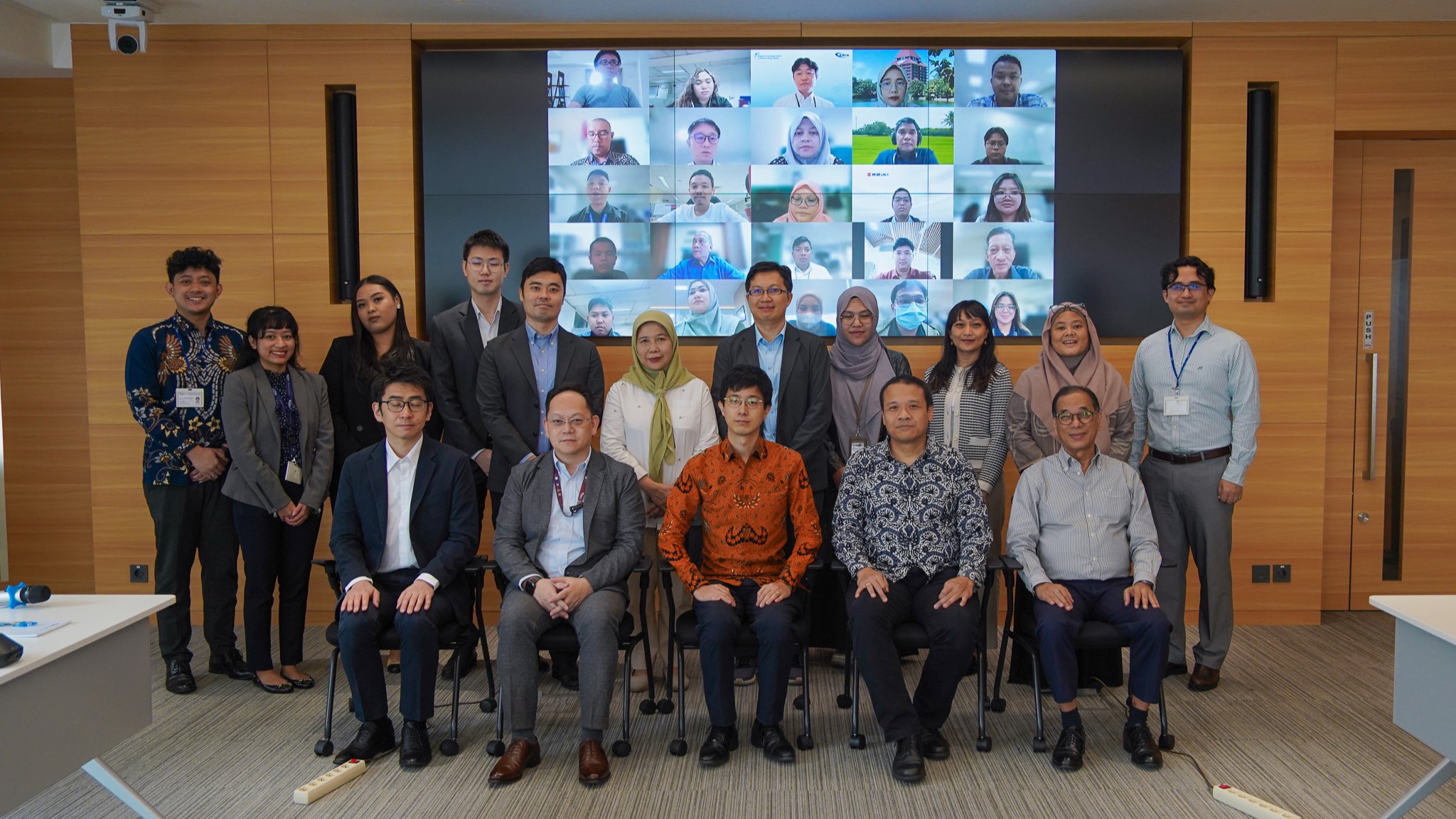Bangkok Dialogue on Efficiency-Based Regional Approach to Realise Sustainable Development Goals
Date:
24 October 2019Category:
NewsTopics:
Sustainable Development GoalsShare Article:
Print Article:
Bangkok, 24 October 2019: The advancement and potential realisation of the Sustainable Development Goals (SDGs) was the subject of an international workshop held on 23–24 October in Bangkok. Organised by ERIA and the National Research Council Thailand (NCRT), the dialogue was participated in by 30 representatives from international organisations, academe, and the private sector, and policymakers. The dialogue focused on new opportunities for ASEAN Member States (AMS) to achieve the SDGs by 2030.
Over the course of four sessions, participants shared perspectives on managing key tasks aligned with 17 SDGs. The goals, to which all AMSs are voluntarily committed, contain targets in areas of critical importance for a sustainable future. The first session articulated the opportunities created by the 2030 agenda for regional cooperation; the second allowed for an evaluation of country-level actions in the implementation of SDGs; the third focused on the current regional economic cooperation framework and the type of indicators required to create a monitoring, reporting, and valuation system with a nexus approach; and the fourth emphasised private sector engagement.
Prof Fukunari Kimura, Chief Economist of ERIA, joined NRCT Secretary General Sirirrug Songsivilai in welcoming the participants. They highlighted the importance of AMSs realigning their cooperative focus with geo-economic principles, standardisation of SDG practices, improvement of data collection, and encouragement of private sector involvement. Several SDG targets, especially environmental targets, they said, need accelerated actions.
Mr Wijarn Simachaya, permanent secretary of the Ministry of Natural Resources and Environment, pointed out that the Thailand government, as the chair of ASEAN, established the ministerial task force on marine debris and produced the Bangkok Declaration of 2019. This declaration contains the framework of action for AMSs, including policy support and planning; research, innovation, and capacity building; education; and private sector engagement. Mr Simachaya added that countries need to utilise existing frameworks for regional cooperation to eliminate barriers that prevent SDGs’ progress, and incorporate country-level standardised national plans that capture the values and vision of SDGs.
Mr Larry Maramis of the Asia Foundation chaired session two, where senior researchers from China, India, Indonesia, Malaysia, the Philippines, Thailand, and Viet Nam discussed the national policy frameworks being adopted across the ASEAN region. Mr Maramis said that mainstreaming SDGs as the guiding principle for sustainable and inclusive growth involves several trade-offs and synergies. Participants highlighted each nation’s level of success as well as SDG targets that lag behind and require additional resources and innovative pathways. As nations attempt to measure the distance to achieving SDGs, the focus should be on creating standardised analytical frameworks to fill gaps in data collection. Focusing on standardisation and data collection will allow for a clearer understanding of the interlinkages and synergies between the SDG targets and help set national policy priorities and within the ASEAN Economic Community.
The third session, chaired by Mr Koji Fukuda, chief advisor and long-term expert for the Japan International Cooperation Agency, recapped the comments received from the monitoring and evaluation of SDGs in the previous sessions. He said that ‘one cannot manage what one cannot measure’, and emphasised the need for specialised adjustments in the use of data for SDG objectives in organisations with different backgrounds and purposes. This introduction was followed by presentations and in-depth discussion on the role of economic cooperation and capital market integration in realising SDGs by 2030. Concerning the development of monitoring and evaluation frameworks that are expansive and inclusive of traditionally overlooked stakeholders at the local level and to incorporate a geo-economic perspective that considers trade liberalization and private capital mobilisation.
In the final session, Prof Sivanappan Kumar of the Asian Institute of Technology led the discussion on private sector engagement strategies, corporate environmental social governance, small business contributions to the SDG agenda, and the financial sector imperatives concerning SDGs. The participants concluded that the overachieving policy issue facing small and medium-sized enterprises in achieving the SDGs is that the goals are expressed in different ways. In larger private sector operations, corporate risk management is the main concern and policy engagement has fallen short in focusing on the supply side of the economics of SDGs.
In conclusion, Dr Kaliappa Kalirajan and Dr Venkatachalam Anbumozhi, co-leaders of the ERIA study, reemphasised the need for deepened understanding of the nexus between environmental, economic, and social SDGs, and the various trade-offs and synergies behind this ambitious agenda. They emphasised that together, the 17 SDGs provide the engine for progress and demand for multi-stakeholder partnerships. The participants shared the view that a clear mapping from each ASEAN country is needed to identify suitable collective actions. To ensure that AMSs fulfil their obligations by 2030, in what is inevitably a complex process, they must continually measure progress at the local, national, and regional levels.
In her closing remarks, Dr Qwanrudee Chottichanathawewong, head of NRCT, said, ‘ERIA’s study on SDGs will enhance this essential accountability, identifying weakness in implementation and highlighting economically efficient pathways to meet obligations and targets’. A statement on innovative regional approaches to achieve SDG targets for ASEAN countries is expected to be produced by Thailand. Also expected is an integrated report on efficient approaches that offer improved metrics for measuring SDG implementation.







